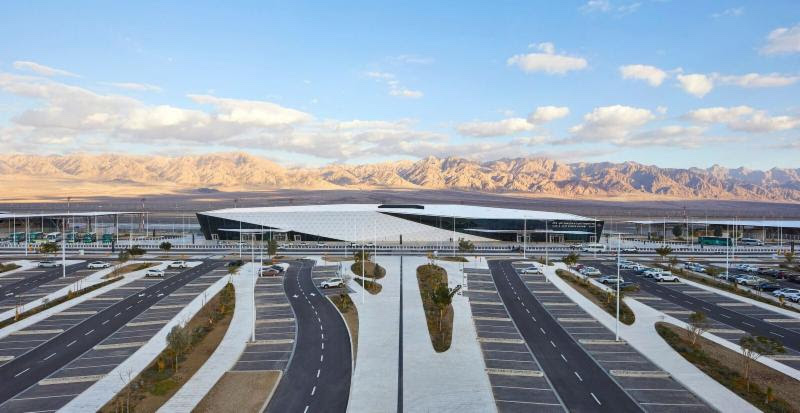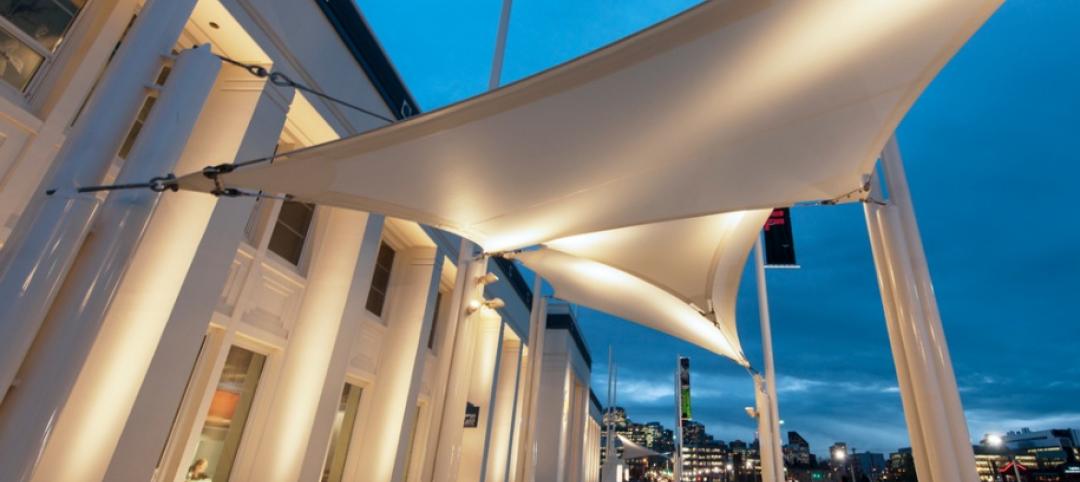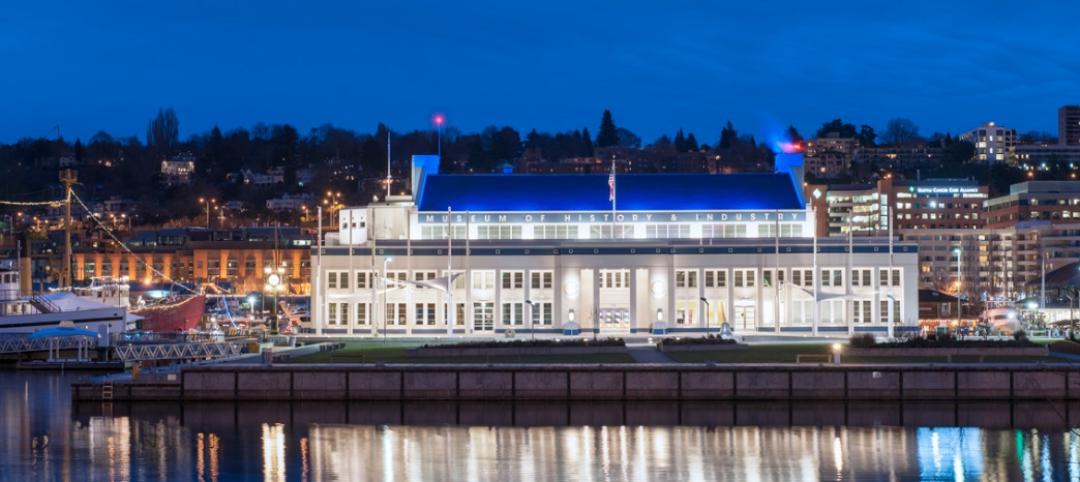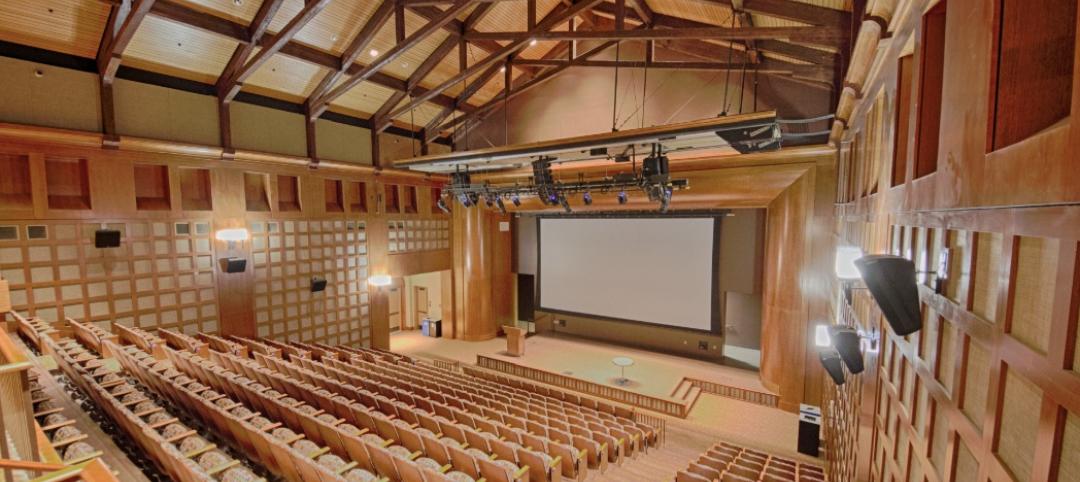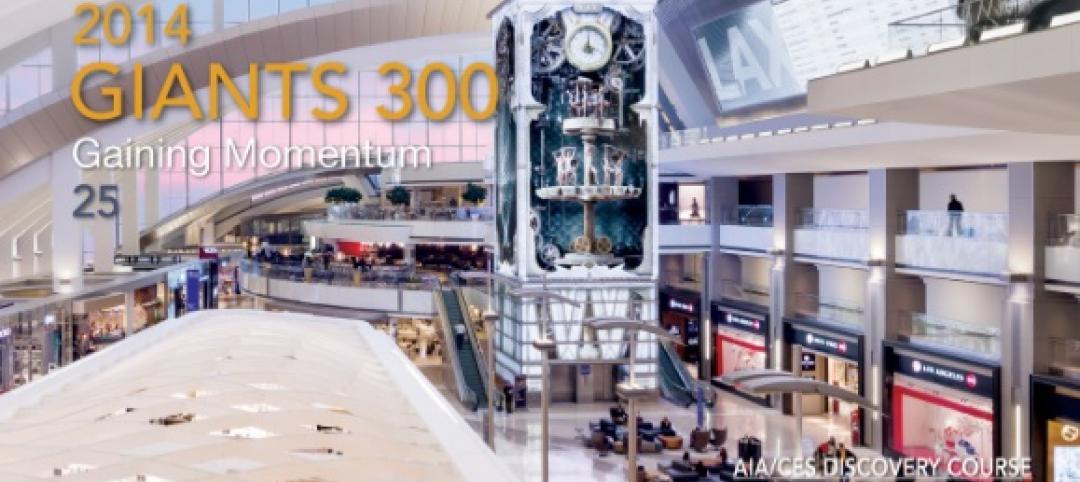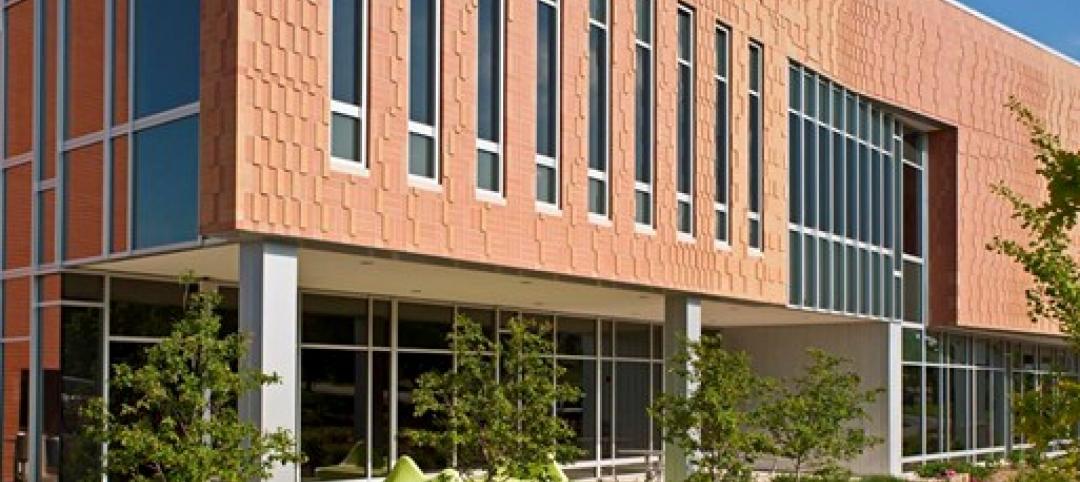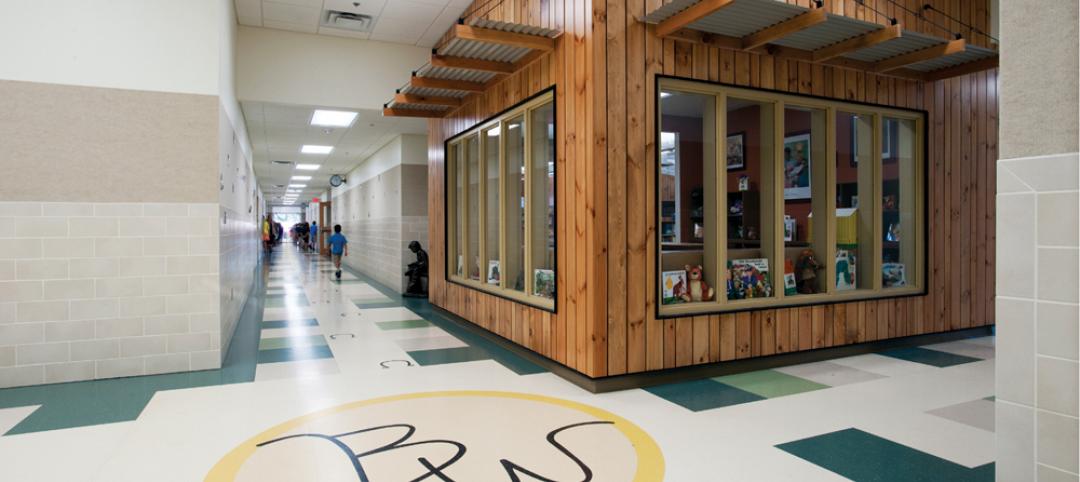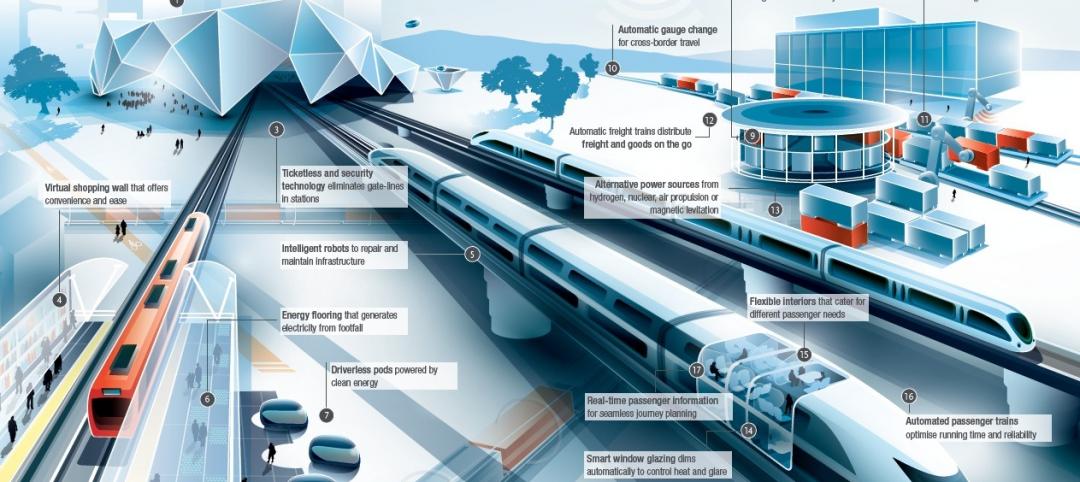Spread across 1,250 acres in Israel’s Negev Desert, the new Ilan and Asaf Ramon International Airport is the country’s first greenfield civil airport project.
The airport features a 484,000-sf Passenger Terminal Building and an 11,811 foot-long runway and taxiway, alongside 40 aprons. Two support structures to the north and south of the terminal add a combined 389,000 sf of space and a 147-foot-tall Air Control Tower.
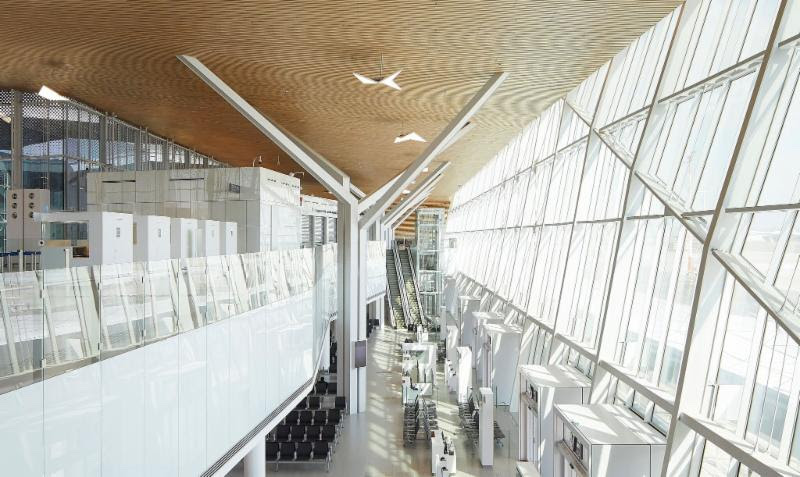
Amir Mann-Ami Shinar Architects and Planers, in partnership with Moshe Zur Architects, was responsible for budget, program, and planning schedule, and designed everything from the various buildings to each individual check-in counter. "In designing the airport we learned from the desert scenery. It required a vision of the most suitable design solution that responds to the existing landscape and climate,” said Amir Mann, Project Design Manager, in a release. “Our objective was how not to compete with the overwhelming emptiness of the site, while creating a place that welcomes passengers through the departure and arrival processes, reflecting through that experience the uniqueness of the desert environment, as a functioning international southern gate to Israel."
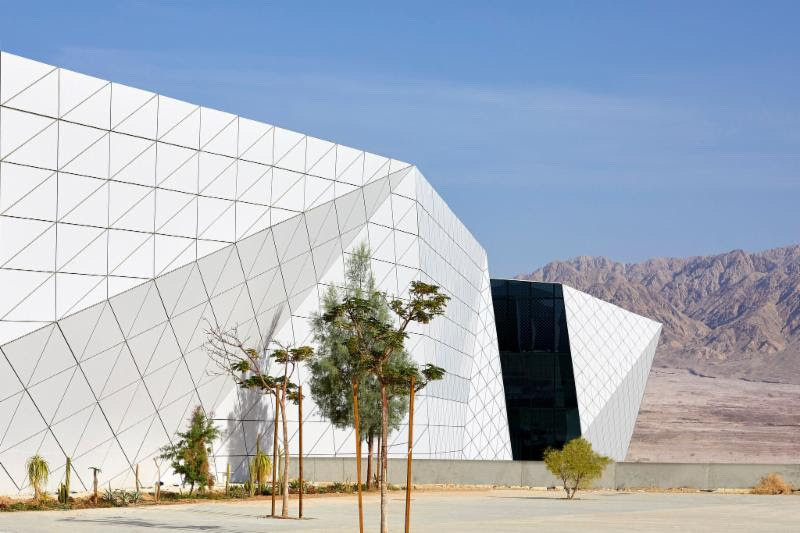
Inspiration for the passenger terminal came from the mushroom-like rock formations found in Israel’s National Timna Park. The opaque terminal uses glass curtain walls to introduce natural light and views inside the terminal in places like entrances and exits, arrivals and departures, and check-in and boarding gate halls.
See Also: Home team wins O’Hare terminal design competition
The building envelope comprises a steel and concrete skeleton structure clad in aluminum triangular panels. The white panels reflect the light rays and UV weaves to help reduce the skin’s temperature. The design forgoes these panels on the interior and instead opts for bamboo wood on the ceilings.
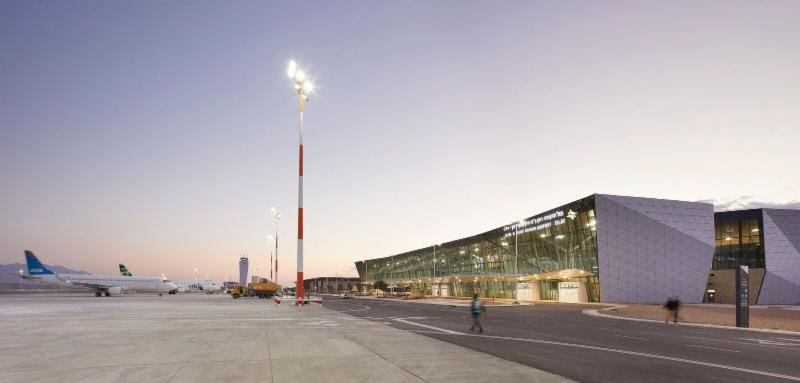
The building’s baggage handling, security processes, and other technical operations are hidden on the lower level so the roof can be free of technical equipment and act as a fifth façade when viewed from an airplane window.
The airport will serve as the new southern gate to Israel and is expected to host 2.25 million passengers per year. The airport has been designed to adapt as that number grows to 4.25 million passengers per year.
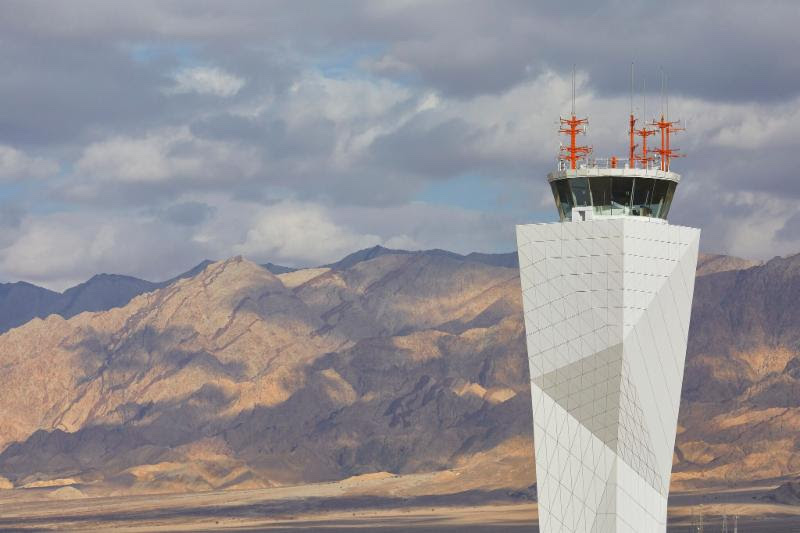
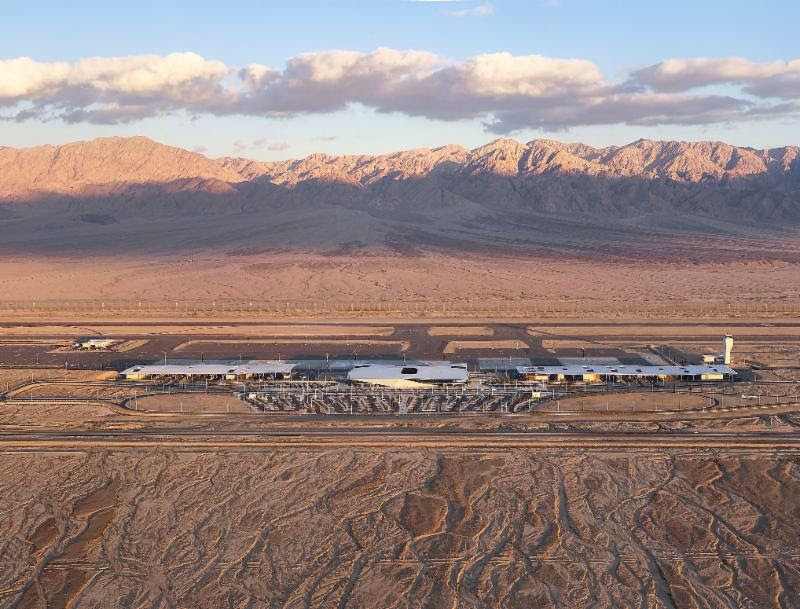
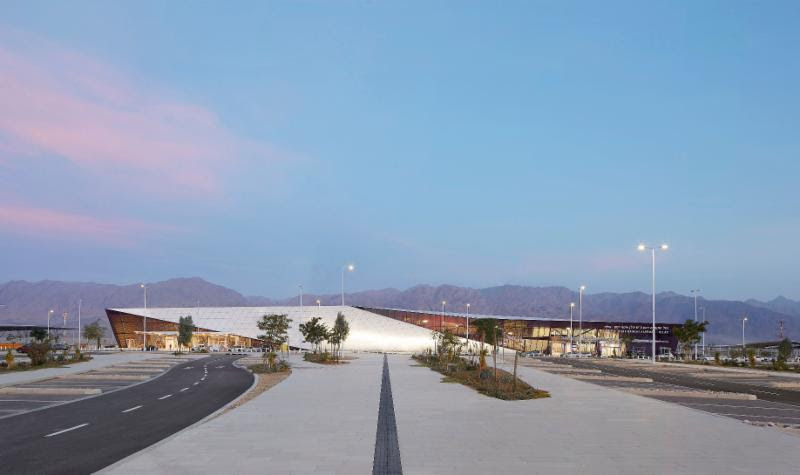
Related Stories
| Jul 18, 2014
Engineering firms look to bolster growth through new services, technology [2014 Giants 300 Report]
Following solid revenue growth in 2013, the majority of U.S.-based engineering and engineering/architecture firms expect more of the same this year, according to BD+C’s 2014 Giants 300 report.
| Jul 18, 2014
Top Engineering/Architecture Firms [2014 Giants 300 Report]
Jacobs, AECOM, Parsons Brinckerhoff top Building Design+Construction's 2014 ranking of the largest engineering/architecture firms in the United States.
| Jul 18, 2014
Top Engineering Firms [2014 Giants 300 Report]
Fluor, Arup, Day & Zimmermann top Building Design+Construction's 2014 ranking of the largest engineering firms in the United States.
| Jul 18, 2014
Top Architecture Firms [2014 Giants 300 Report]
Gensler, Perkins+Will, NBBJ top Building Design+Construction's 2014 ranking of the largest architecture firms in the United States.
| Jul 18, 2014
2014 Giants 300 Report
Building Design+Construction magazine's annual ranking the nation's largest architecture, engineering, and construction firms in the U.S.
| Jul 7, 2014
7 emerging design trends in brick buildings
From wild architectural shapes to unique color blends and pattern arrangements, these projects demonstrate the design possibilities of brick.
| Jul 2, 2014
Emerging trends in commercial flooring
Rectangular tiles, digital graphic applications, the resurgence of terrazzo, and product transparency headline today’s commercial flooring trends.
| Jun 30, 2014
Arup's vision of the future of rail: driverless trains, maintenance drones, and automatic freight delivery
In its Future of Rail 2050 report, Arup reveals a vision of the future of rail travel in light of trends such as urban population growth, climate change, and emerging technologies.
| Jun 18, 2014
Arup uses 3D printing to fabricate one-of-a-kind structural steel components
The firm's research shows that 3D printing has the potential to reduce costs, cut waste, and slash the carbon footprint of the construction sector.
| Jun 12, 2014
Austrian university develops 'inflatable' concrete dome method
Constructing a concrete dome is a costly process, but this may change soon. A team from the Vienna University of Technology has developed a method that allows concrete domes to form with the use of air and steel cables instead of expensive, timber supporting structures.


